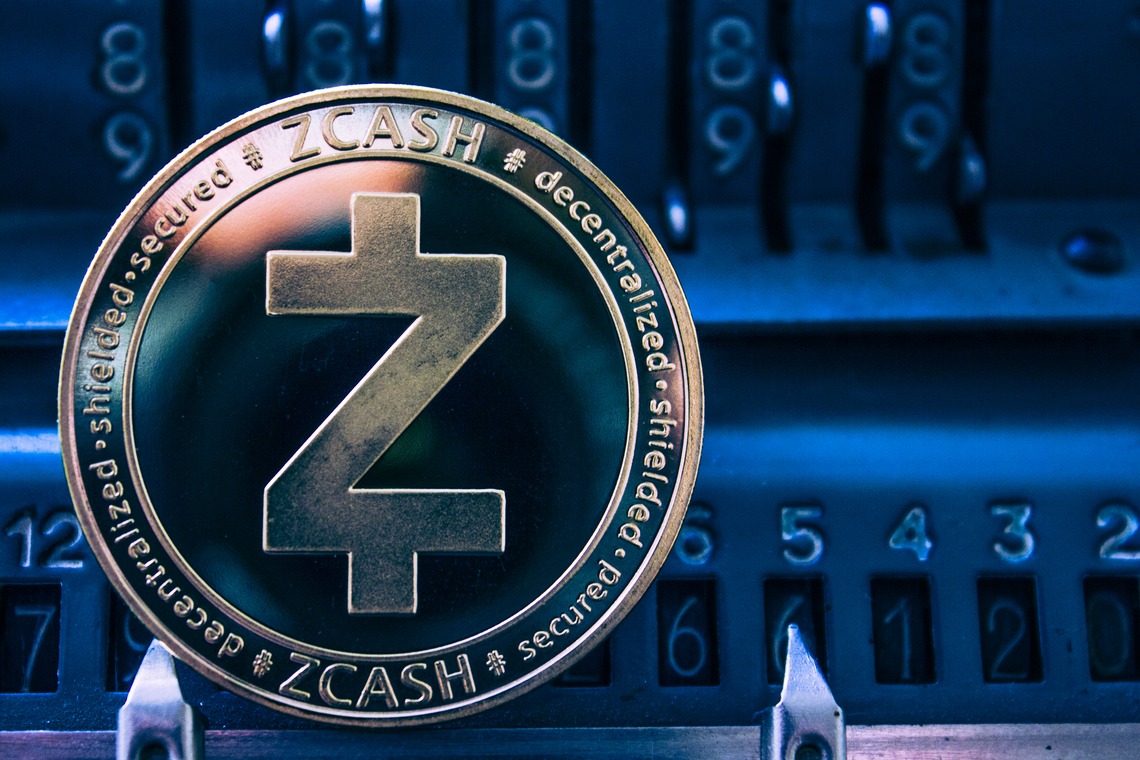While Bitcoin and Ethereum are the most popular cryptocurrencies, they aren’t the privacy coins some think they are. In fact, thanks to the open-source nature of blockchain technology, Bitcoin transactions are entirely public via the technology’s distributed ledger, not to mention the know-your-customer policies implemented at most exchanges.
But what if someone wants a way to trade cryptocurrencies entirely anonymously, which is one of the most attractive aspects of this technology? This is where a privacy coin comes in. A privacy coin is similar to traditional cryptocurrency; only they hide wallet addresses and obfuscate information that could be used to trace anything back to a wallet owner.
In this guide, we’ll go over how privacy coins work and what they’re used for.
How Does a Privacy Coin Work?
The thing about privacy coins is they’re not all that different from “normal” cryptocurrencies. For instance, they still rely on a public ledger. One can generally still tell that a transaction has been made, but it’s much harder to track wallet addresses. This is invaluable for those who strongly value their privacy.
But, there are dozens of privacy coins out there, many of which use their own methods to ensure anonymity, and each to varying degrees of success.
Monero
The most popular privacy coin in terms of market cap, Monero, utilizes stealth addresses and ring signatures to keep trades anonymous, all under the network’s “CryptoNight” proof-of-work consensus algorithm. Each Monero wallet has a public address that includes a public view key and a public send key. However, transactions are not sent to those addresses.
Instead, the sender’s wallet utilizes the recipient’s two keys to generate a one-time stealth address and sends the Monero to that newly-created one. This stealth address is public so a transaction can be recorded on the blockchain, but nobody knows who it’s for aside from the recipient. The only thing the world can see is that a transaction was made.
The recipient’s wallet then scans the Monero blockchain for this stealth address via a private view key that corresponds with the stealth address. Once found, the funds are then sent to the recipient’s wallet with no one else the wiser. The recipient can, however, make a transaction visible by sharing their public view key.
But how does the sender remain anonymous? Thanks to ring signatures.
Monero’s ring signatures are a form of transaction mixing, which more than a few privacy coins use. Upon sending funds, a “ring” of users sign the transaction alongside the sender. That way, it’s nearly impossible to track which is the “real” sender, ensuring anonymity for all.
Bytecoin, another anonymous cryptocurrency built from a Monero fork, also utilizes ring signatures.
DASH
DASH is interesting because its primary intent isn’t so much privacy rather than to be a fast digital currency for anyone to use. But, it provides a fantastic privacy feature, PrivateSend, to ensure anonymity for traders.
An entirely optional feature, PrivateSend keeps transactions anonymous via coin mixing, which is done via Coinjoin integration. It starts by dividing up a transaction total into intervals of 0.001, 0.01, 0.1, 1, and 10 DASH. Think of it like breaking down a $50 bill into $10s, $5s, and $1s, etc.
Then, a DASH wallet will privately inform different masternodes across the network that a private transaction is being made. It will pair this transaction up with other users looking to do the same. From there, that masternode will mix each “input” and then send it back to the wallet in which it came, only to a slightly different address called a change address, of which each wallet has 1000 to use. This way, nobody can trace the transaction back to the main wallet.
This can be done up to 16 times, each time making it harder to track the transaction’s origin. From there, the DASH will be stored in a PrivateSend-specific wallet for users to send. However, it’s worth noting that PrivateSend transactions cost a higher fee than traditional ones, as they take up more space on the blockchain.
/Related
More ArticlesZcash
Like DASH, Zcash allows for private or transparent transactions. A transparent transaction works just like Bitcoin does, with addresses and other details recorded on the public blockchain for all to see. Private transactions, however, are encrypted, and only the fact that a transaction has occurred is registered to the blockchain.
Zcash has two different address types: z-addresses or t-addresses. The former facilitates private transactions while the latter correlates to transparent ones. Sending a transaction from one z-address to another is considered a private transaction. Z-address to t-address is called deshielding, and the opposite is called shielding. Finally, t-address to t-address is a public transaction no different than most other cryptocurrencies.

Private transactions are possible thanks to zero knowledge proofs or zk-SNARKs. Essentially, zk-SNARKs allows users to verify that a legitimate transaction was made without revealing how much or who it was sent to. Once a transaction is initiated, a “proof” is constructed that proves the sender has the private key that represents the Zcash to be sent. This is enough for verifiers to trust the transaction is real and not a “double-spend” of any sort. They know it’s a valid transaction without needing to know who is making it or where it’s going.
Verge
Verge also offers optional private transactions. Those who opt-in to anonymous transactions will enjoy the benefits of Verge’s “Wraith Protocol.” This protocol is made up of two systems: I2P tunnelling and IP obfuscation via the Tor network. Both are integrated into Verge, so there’s no need for a third party option to hide an IP address.
When a Verge user sets the private ledger to “ON” within their wallet, all transactions are run through Tor automatically. Tor ensures information is difficult to follow before it erases that info completely. It encrypts data into layers before sending each one off to a different “relay” around the globe. This makes it nearly impossible to track, hiding a user’s IP address in the process.

As for I2P tunnelling, this method allows users to communicate with one another peer-to-peer, ensuring all information sent between two parties remains between them alone.
Finally, Verge also supports atomic swaps, allowing traders to convert cryptocurrencies in a peer-to-peer way, eliminating the need for a traditional exchange. Atomic swaps are based on smart contract technology, essentially a digital if-then statement. If two users want to trade funds, both have to place those funds in an escrow service. If the users fulfil that requirement, then the funds are unlocked, and each receives the sent assets from the other trader.
Grin & Mimblewimble
Mimblewimble is an altered proof-of-work blockchain protocol based on Bitcoin’s original design. It was designed with the intent of solving Bitcoin’s scalability issues. Interestingly, networks built on Mimblewimble don’t have public addresses meaning there’s simply no information in which one can trace a transaction to its origin. Only the two parties participating in a transaction can see the relevant data.
The protocol is built on two fundamental policies: zero-sum verification and the ownership of private keys. The former states that verification can only occur if the sum of the outputs and the inputs in a transaction is zero. That means no new currency was formed, proving there’s no double-spend occurring, all without revealing the transaction amount.

Proving zero also calculates a multi-signature private key, which proves that the sender has included the right amount of assets.
What’s Grin then? A cryptocurrency built on Mimblewimble blockchain technology that enhances its scalability and privacy offerings. Transactions on Grin are automatically deleted over time, not only increasing the network’s speed but preventing others from potentially tracking them. While this mitigates the ledger aspect of a blockchain network, it’s fantastic for privacy.
PIVX
PIVX is a proof-of-stake DASH fork. It has a similar vision to DASH as well, though with the new consensus method in place. Also, the asset is very community-driven, and PIVX’s network of masternodes contributes to lower transaction fees.
For a brief period, the asset also took advantage of the Zerocoin protocol, which converted the public-facing PIV coin into a private zPIV coin. Send zPIV would appear in the recipient’s wallet as just PIV. However, that technology has been disbanded, and the group is now working on a new privacy protocol.

Of course, there are many, many more privacy coins with their own technologies behind them. However, above are the assets that have seen enough success to be of note. Each values privacy in its own way and provides a new idea that can be iterated on for future use.
Why Use a Privacy Coin?
Privacy coins are essential in today’s day and age, where personal data is quite valuable. Privacy is vital not because we have something to hide, but because it allows a person to conduct themselves on their own terms. There’s no reason the rest of the world should see every transaction made. It’s like a celebrity put under the spotlight and criticized for every choice they make. It weighs down on one’s conscious and is entirely unnecessary.
Even if privacy coins aren’t perfect, they allow users to transact online without the whole world seeing. This is useful for businesses and their clientele or for personal banking and spending. Privacy should be a right for all, and privacy coins are here to try and provide that.

Is Bitcoin Untraceable?
While Bitcoin and other cryptocurrencies are valuable innovations that enable complete control over one’s finances, many of them are not private.
That said, in the case of Bitcoin, one’s information isn’t just thrown on the blockchain for everyone to see. It requires a bit of effort to track. But, it’s possible to follow a Bitcoin back to its very first wallet. One can see how much that wallet has held and potentially track it to the holder.
However, this doesn’t mean Bitcoin is worse than privacy coins in every way. After all, adding anonymity features to a transaction slows down its verification time, clogging up networks, and slowing scalability. That’s why cryptocurrencies like DASH provide privacy as an option. Users need to weigh whether or not their transaction is worth taking up more space on the blockchain.

What is the Best Privacy Coin?
It’s difficult to classify the most private cryptocurrency considering these assets utilize all sorts of different methods. One could consider Monero the best, for example, because it’s the highest privacy coin in terms of market cap. But this asset has suffered from numerous security flaws since its inception.
Grin might claim to be a more advanced privacy coin, but one user claims to have broken through its protocols. Also, an increase in complexity can also make using said technology more confusing, and that can be a big turn off. Bitcoin might not be private, but it’s relatively easy to use, for example.
The point is, each coin has its own pros and cons. A user needs to keep up on news regarding their choice of privacy coin and make sure to pick the one that has the features they prefer.
Are Privacy Coins Completely Anonymous?
No privacy coin is 100% anonymous. The policies in place are there to make it very difficult for someone to break through, but it’s never impossible.
Breakthroughs in quantum computing, for example, can cause blockchain security to take a hit. After all, these computers could decrypt the cryptographic algorithms that protect private keys and other aspects of decentralized networks. That’s how fast they are.
Networks have some time to try and counter this, but until then, they’re more and more susceptible to hacks as computer speeds outpace blockchain security.

Pros and Cons of Using Privacy Coins
Privacy coins serve as a valuable alternative to Bitcoin and other public cryptocurrencies. Those who want to remain anonymous while trading can take their pick based on which methods speak to them. However, there are a few pros and cons that apply to anonymous cryptocurrency as a whole.
Pros of Using Privacy Coins
1. Anonymity
The most obvious benefit to these coins is the privacy offered by them. While the public ledger aspect of blockchain technology is useful, it doesn’t serve everyone’s needs. Privacy coins ensure users can transact any amount to any person, all without facing scrutiny. Privacy is a right, and cryptocurrency users are subject to that right.
With personal information being used as a commodity, privacy is more important than ever.
2. Financial Security
Not only does anonymity help protect identities, but it prevents putting a target on one’s back. If, say, a business is transacting high amounts with clients, competitors, or hackers could see this and try to investigate. Anonymity prevents the public from knowing who is participating in a deal, or how much it is for.
Significant Bitcoin transactions are publicized on Twitter accounts like @Whale_Alert, for example. This screams for bad actors to trace that address and discover more about the holder.

Cons of Using Privacy Coins
1. Higher Transaction Fees
Because privacy coin transactions have all of these extra features, they’re generally bigger and translate to higher transaction processing fees. This can be frustrating, depending on what they’re being used for.
DASH’s PrivateSend transactions are an excellent example of this.
2. The Stigma
Privacy coins are often viewed negatively because that anonymity can aid terrorists, money laundering and other bad actors. Unfortunately, associating with privacy projects can then project that stigma to others in a sort of “what do they have to hide” way.
Governments are often against privacy coins because these assets circumvent regulatory power more than traditional cryptocurrencies do.
Frequently asked questions
What are privacy coins?
How do privacy coins achieve privacy?
Are privacy coins legal?
Trusted
Disclaimer
In line with the Trust Project guidelines, the educational content on this website is offered in good faith and for general information purposes only. BeInCrypto prioritizes providing high-quality information, taking the time to research and create informative content for readers. While partners may reward the company with commissions for placements in articles, these commissions do not influence the unbiased, honest, and helpful content creation process. Any action taken by the reader based on this information is strictly at their own risk. Please note that our Terms and Conditions, Privacy Policy, and Disclaimers have been updated.





